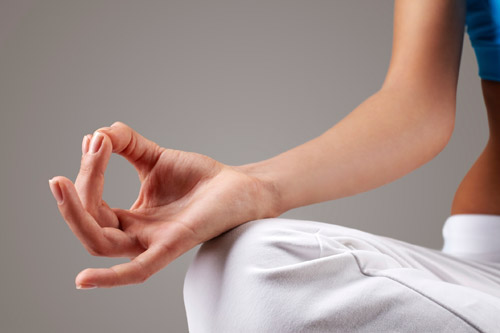by Edison de Mello and Meme Rhee
Are you one among 70 million Americans suffering from insomnia? Insomnia is the inability to get enough sleep to feel good the next day, or get good quality sleep that is deep, restorative and uninterrupted. The four symptoms that characterize insomnia are:
- difficulty falling asleep
- waking frequently during sleep
- waking too early and difficulty falling back to sleep
- waking feeling unrefreshed
According to the National Sleep Foundation’s 2005 Sleep in America poll, about one-half of America’s adults say they frequently experience at least one symptom of insomnia. While those who suffer from insomnia are clearly aware that too little sleep can cause fatigue and grouchiness, very few know that lack of sleep has been linked to increased risk of cardiovascular disease, obesity, diabetes and compromised immunity.
The three types of insomnia are acute, chronic and primary.
- Acute insomnia lasts less than one month;
- Chronic insomnia occurs consistently for one month or longer and is likely to be associated with an underlying medical or psychological condition;
- Primary insomnia is often lifelong and occurs without an identified underlying cause.
When acute insomnia is not addressed, poor sleep can become a habit; the insomniac continually expects that s/he will have difficulty sleeping, a vicious cycle occurs, and insomnia can become long term.
Negative Effects of Insomnia
Sleep allows both mind and body to recuperate, helping you start the next day alert and energetic. Release of growth hormone and many other important hormones peaks during sleep. Poor sleep can make you depressed, interfere with memory and increase your risk of being in an accident. Worse yet, lack of sleep increases insulin resistance, raises blood sugar levels, causes hormone imbalances and increases your risk for a number of conditions.
Heart Disease: Mounting evidence suggests that sleeping too little may increase the risk for coronary heart disease. For those who average less than five hours per night, the risk of suffering a heart attack nearly doubles compared to those who sleep longer. Sleep gives the heart time to relax in a low-stress state.
Weight Gain: a study of 18,000 adults, those who got less than 4 hours of sleep were 73% more likely to be obese than those who slept between 7 and 9 hours. Those who slept only 5 hours were 50% more likely and those who slept 6 hours 23% more likely to be overweight. (Diabetes Forecast, May, 2005)
Poor Sex Drive: Testosterone levels can drop dramatically when you don’t get enough sleep.
Diabetes: A four year study, involving over 6000 men suggests that sleep disturbances and, possibly, elevated resting heart rate in middle-aged men are associated with an increased risk of diabetes. Sleep disorders are much more common in diabetics. (Diabetes Care, Oct. 2004)
Some Possible Causes for Sleep Disorders
Anxiety disorder, a far more common problem than was once thought, can be either acute or chronic. Acute anxiety disorder manifests itself in episodes commonly known as panic attacks in which the body’s natural “fight, flight or freeze”? reaction occurs when there is no real threat. Chronic anxiety is a milder more generalized form of this disorder. Many sufferers feel an overall sense of vague uneasiness.
A reaction to change or stress is one of the most common causes of short-term and transient insomnia. A factor could be a traumatic event such as illness, injury or surgery, or the loss of a loved one, or it could be a minor event, including extremes in weather, an exam, traveling, or trouble at work. In such cases, normal sleep almost always returns when the individual recovers from the event or becomes acclimated to the new situation.
People who are over-involved with their work tend to have trouble falling asleep and tend to waken earlier than average.
Your caffeine or alcohol intake can lead to sleeplessness. Caffeine most commonly disrupts sleep. Many caffeine drinkers need to monitor quantity as well as timing of consumption. Excess alcohol or alcohol used to promote sleep, however, tends to fragment sleep and cause wakefulness a few hours later. Alcoholics often suffer insomnia during withdrawal and, in some cases, for several years during recovery.
Common medications, including over-the-counter preparations that contain caffeine cause insomnia. People who suspect their medications are causing them to lose sleep should check with a physician or pharmacist.
Sleep Nutrition
Some natural ways to combat insomnia can include incorporating herbs and vitamins to your diet.
Valerian root is one of the most popular herbal relaxants. It is an effective muscle relaxer and has a calming effect for general nervousness, depressions, despondency and nervous headaches. Valepotriates (iridoid compounds present in the root infiltrate brain tissue, blood cells and the central nervous system where they produce a strong sedative effect through the entire body). Valerian has been widely used in folk medicine as a sedative. In clinical studies using valerian for relief of insomnia, the herb was found to:
- Reduce the time required to fall asleep (sleep latency)
- Improve sleep quality
- Reduce morning sleepiness
Thiamin (B1) is known as the “morale vitamin”? because of its relation to a healthy nervous system and its beneficial effect on mental attitude. A lack of calcium and magnesium can cause patients to wake up after a few hours and not be able to return to sleep.
Magnesium acts as a relaxant and is necessary for proper function of nerves, muscles and neuromuscular contractions. Magnesium deficiency may be involved in restless leg syndrome (RLS), a condition that can cause many people to have trouble sleeping.
5-Hypdroxy L-tryptophan (5HTP) and melatonin, both available as dietary supplements, are also effective sleep promoters. 5HTP is particularly helpful when sleeplessness is related to depression. Some researchers feel that melatonin should be limited to occasional use since overuse may stop the body’s own production of this vital hormone.
There are pharmacological and behavioral treatments for insomnia and these two approaches are often combined. For acute or chronic insomnia, an integrative medical practitioner will determine if there is an underlying problem and treat this condition first. When appropriate, insomnia may also be treated along with the medical or psychiatric condition.
Sleep Therapy
Behavioral treatments include stimulus control, sleep restriction, cognitive behavioral therapy and relaxation training.
Stimulus control – a person with insomnia symptoms learns to make positive, strong associations between sleep, and the bed and bedroom. The bed and sleeping environment become a cue or stimulus for sleep and are used only for sleeping or sex. With this type of treatment, people with insomnia go to bed only when sleepy. If they awake during the night or too early in the morning, they should get out of bed, go to another room and engage in a relaxing activity such as reading until they become sleepy again; they should then return to bed.
Sleep restriction – entails following a schedule that restricts or limits the time in bed, which, in turn, increases the need for sleep. Patients are provided with a schedule that adjusts their sleep in small increments over time. When they are actually in bed, they are sleeping most of the time, rather than tossing and turning and trying to sleep.
Cognitive behavioral therapy – patients learn to change their attitudes and develop more positive beliefs about sleep, overcoming stressing thoughts and behaviors that keep them awake.
Relaxation training – techniques for the body and mind that include progressive muscle relaxation, yoga, guided imagery and biofeedback.
Medication
While natural alternatives are preferable to pharmaceuticals, chronic insomniacs may resort to over-the-counter (OTC) or prescription medications. Sleeping pills, however, can interfere with REM sleep and continued use can eventually lead to disruption of all the deeper sleep states. Persistent use can also lead to dependency, either physical or psychological. OTC sleep aids can cause a wide range of side effects including agitation, confusion, depression, dry mouth and worsening of enlarged prostrate.
An Integrative Treatment Plan
Since the physical and psychological aspects of insomnia are interconnected, taking an integrative medical approach would likely bring greater success to addressing sleep deprivation. At the Akasha Center, in addition to a comprehensive medical evaluation, our team will examine all aspects of the patient’s lifestyle, nutrition and stress levels in order to create the appropriate treatment plan. In addition, we encourage patients to get the support of an integrative therapist to address the psycho-emotional issues that often accompany anxiety and stress-induced insomnia.
For more information, please contact Dr. Edison de Mello 310-451-8880









